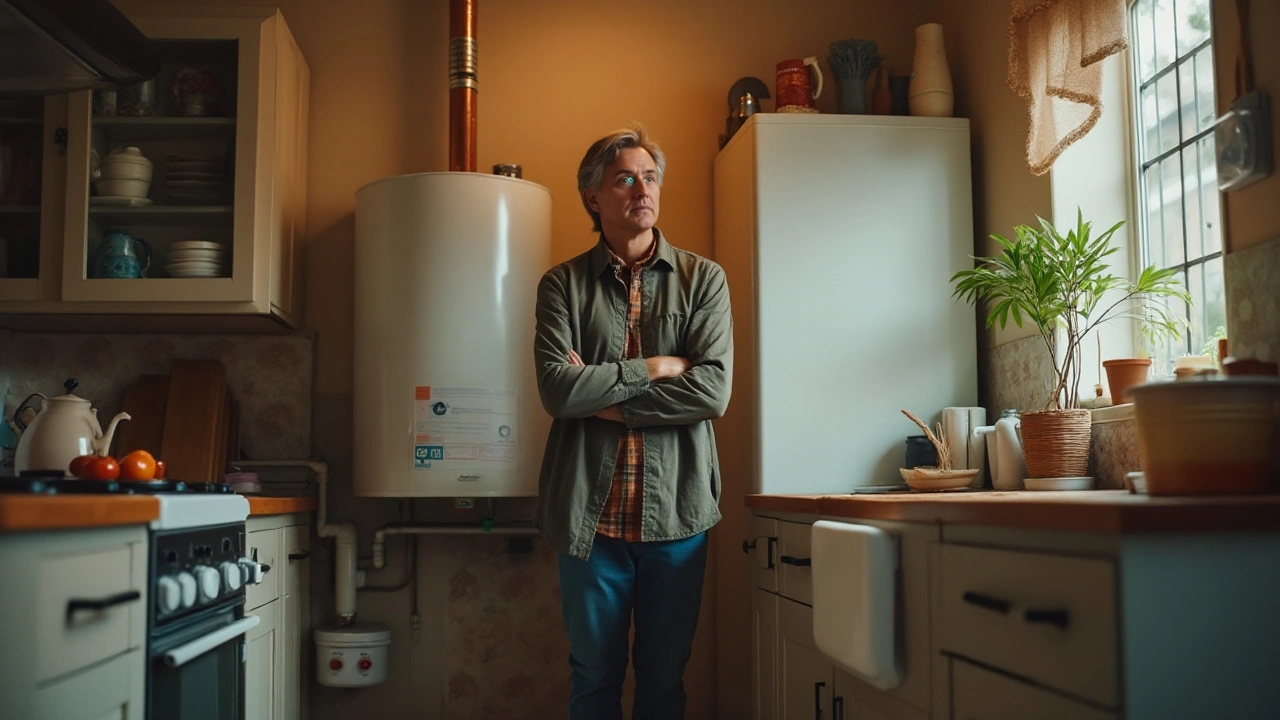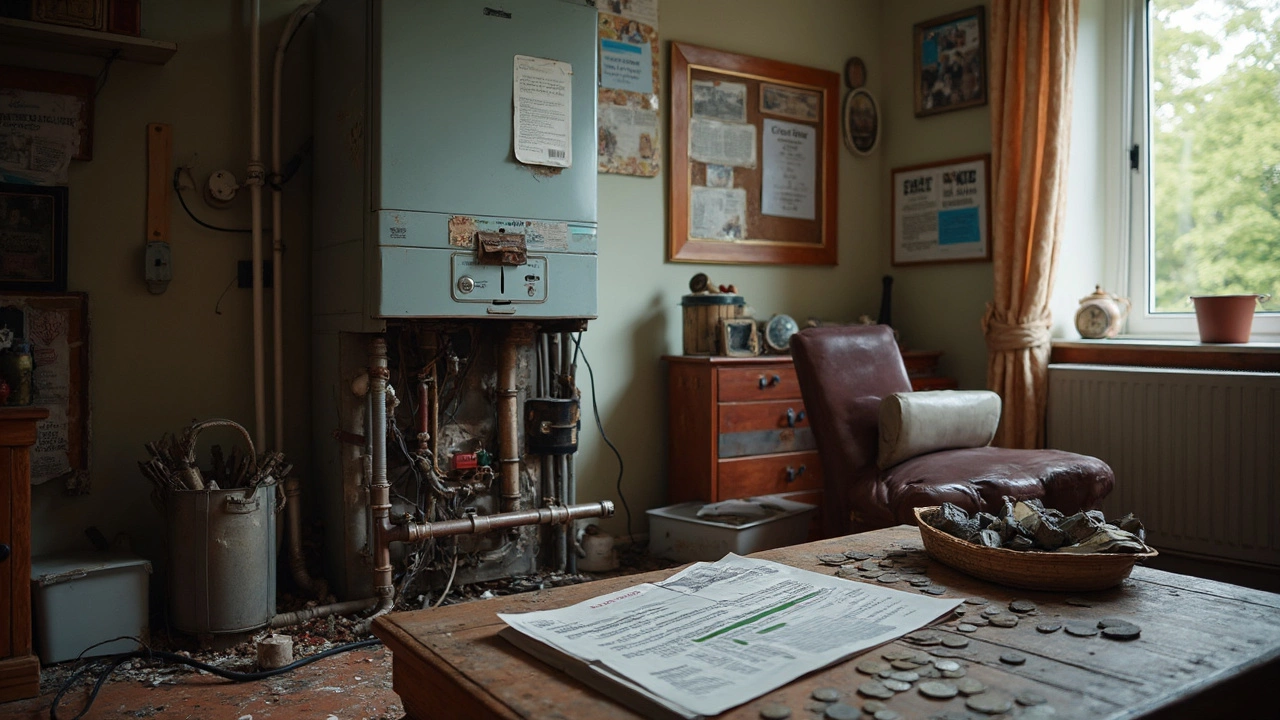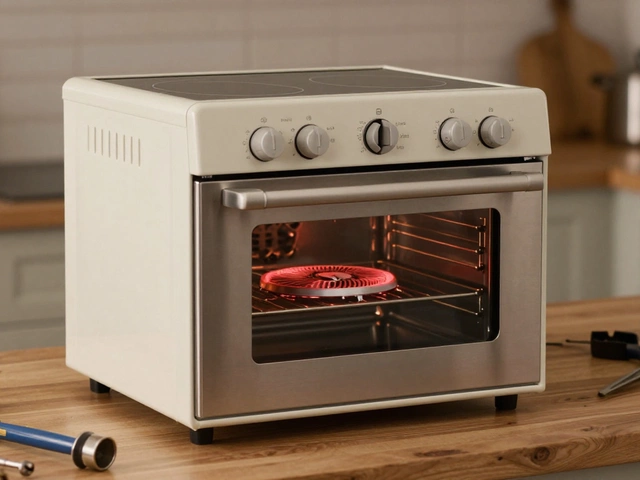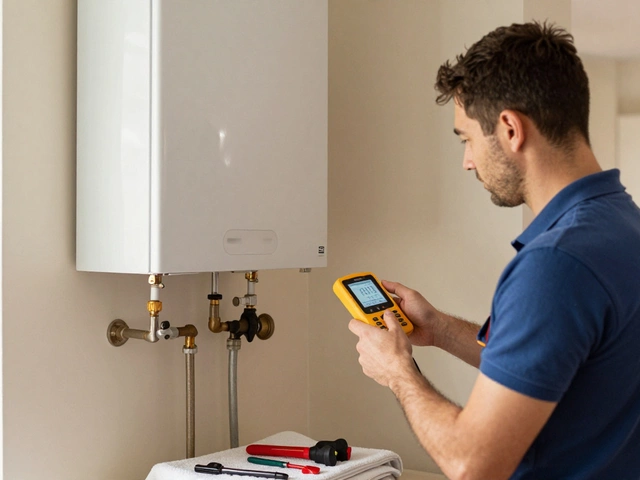Deciding whether to repair a 20-year-old boiler can feel like uncovering a hidden map to buried treasure. There are many factors at play, making the process both intriguing and challenging. On one hand, your old boiler might seem like an old friend—reliable and familiar. On the other hand, newer models across the market promise efficiency and lower energy bills. Weighing the pros and cons carefully, and understanding the implications for both your wallet and peace of mind, is crucial.
Some might wonder if their current boiler can withstand another chilly season or if it's time to invest in a new one. Advancements in technology have significantly boosted boiler efficiency. The newer models are designed to save energy and reduce carbon footprints, making them appealing options. However, the choice isn't clear-cut. Delve into the key considerations, including telltale signs of wear, repair costs, energy efficiency, safety, and environmental impact. Let's turn on our metaphorical magnifying glasses and make a decision that fits both your needs and your budget.
- Signs Your Boiler Needs Attention
- Cost vs. Benefits of Repairs
- Technology and Efficiency Considerations
- Safety and Environmental Impact
Signs Your Boiler Needs Attention
Like the steadfast vehicle enduring daily commutes, your boiler quietly works behind the scenes to keep your home warm. Yet, over time, it will also show signs of wear and tear. Recognizing these signs early can help you avoid discomfort and even costly emergency repairs. One major sign that your boiler might deserve a service or replacement stems from unusual noises. While some low hums and clicks are to be expected from such hardworking equipment, screeches, banging, or whistling aren’t normal. Often, these noises indicate trapped air, awkward water flow, or problems with the boiler’s components needing adjustment.
Moreover, an inexplicable increase in energy bills is another clue. If your monthly costs are steadily rising while your energy usage remains unchanged, your aging boiler may be losing its efficiency. Boilers of 20 years or more are less efficient due to outdated technology compared to modern units. Newer models are built to enhance energy efficiency, potentially saving you money year after year. A boiler's inability to maintain a constant temperature is yet another red flag. If you find that your rooms swing from hot to chilly or require frequent thermostat adjustments, it points to an issue in the circulation or a failing component.
Signs appear visually as well. Inspect for visible rusting or water leaks around the boiler unit. A leaking boiler not only underperforms but may lead to significant water damage if left unchecked. Regular boiler check-ups can spot such signs before they escalate into larger problems. As energy.gov emphasizes, routine maintenance can help extend the life of your heating system, keeping it safe and effective. High-pitched sounds, erratic heating, spiking energy costs, and a constant need for repairs could mean it is time to weigh the benefits of repairing versus replacing the unit. At times of doubt, consulting a professional can provide clarity and ensure your home stays both warm and safe.
“A boiler's average lifespan is significant but not indefinite. Taking proactive measures is key to ensuring continued efficiency and safety.” — Energy Saving Trust
Ignorance when it comes to a malfunctioning thermostat is another sign that sneaks under the radar. If your boiler fails to respond quickly or effectively when you adjust your thermostat, it could suggest deeper systemic faults or issues with the thermostat itself. Beyond your wallet, consider the safety concerns tied with these problems. Carbon monoxide leaks, although rare, remain a critical risk associated with boiler malfunctions. Hence, the presence of yellow or flickering flames instead of blue ones demands immediate attention.
In the intricate world of boiler repair, paying attention to evolving signs ensures a comfortable home environment, prudent financial choices, and a lasting heating system. Each curious noise, heat hiccup, or out-of-the-blue spike in bills carries a story. It’s about recognizing these narratives before they become sagas, positioning you to stay ahead in your ongoing quest for warmth and efficiency.
| Sign | Possible Issues |
|---|---|
| Unusual Noises | Air in System, Component Issues |
| Higher Energy Bills | Reduced Efficiency, Old Age |
| Inconsistent Temperature | Circulation Problems |
| Rust or Leaks | Corrosion, Potential Damage Risk |
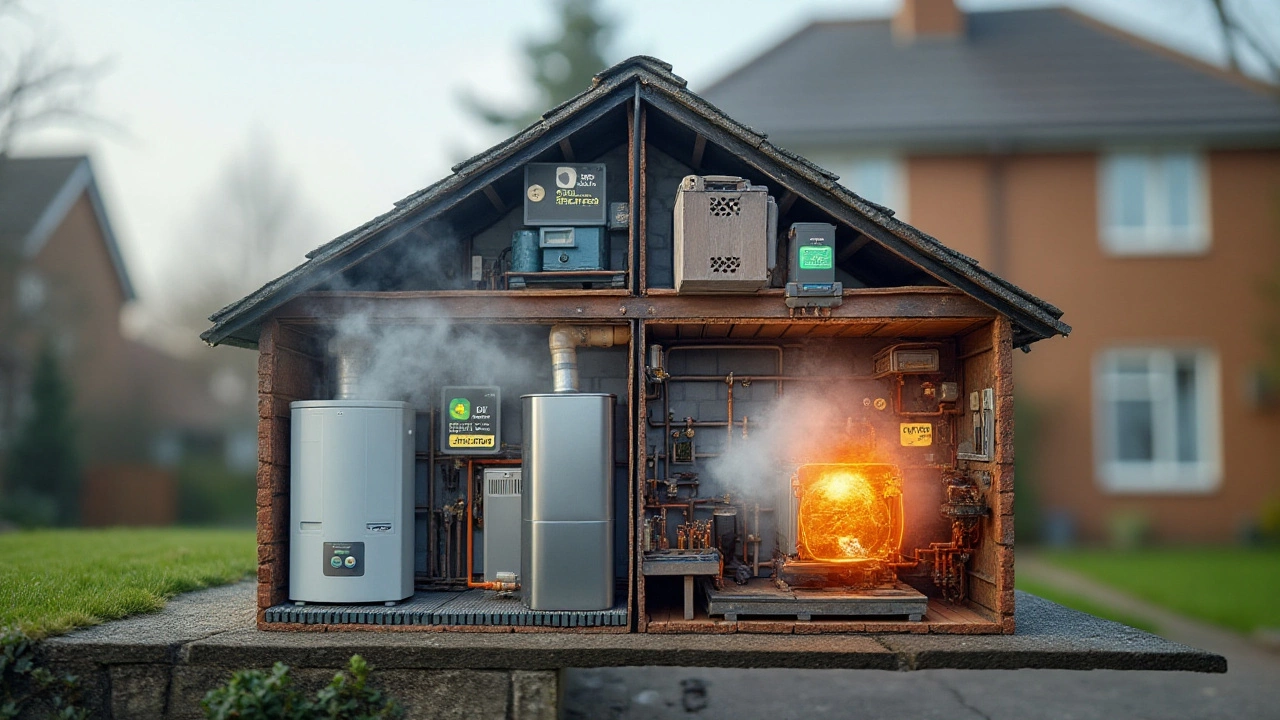
Cost vs. Benefits of Repairs
When deciding whether to repair a boiler that's been in service for two decades, both financial and practical aspects must be meticulously weighed. Older boilers often resemble cherished artifacts, offering a sense of familiarity and comfort. However, like any aging piece of technology, they can become costly to maintain. Considering the average repair cost for older models is between $200 to $600, according to HomeAdvisor, spotting the point where repairs outstrip the value becomes crucial. As parts wear out, they often invite a domino effect of failures, each repair offering only a temporary respite. Paying for frequent repairs on a creaky system may feel like throwing money into a bottomless pit.
On the flip side, the benefits of repairing an old boiler can sometimes make it a sensible choice. For one, replacements can cost anywhere from $3,500 to $7,500, depending on the model and complexity of installation. If your old heating system can operate efficiently with minor interventions, such as replacing a thermostat or pressure valve, the cost savings can be significant. Investing in these modest repairs may buy a few more years of service, allowing time to plan and budget for a future upgrade.
It's equally pivotal to factor in energy efficiency, as legacy systems typically lag behind modern counterparts in this regard. A new boiler could reduce energy usage by 10% to 15%, according to Energy Star research, translating directly into lower energy bills. Hence, the mathematical equation isn’t merely about immediate repair costs but should consider long-term energy savings too. An insightful report by Which?, a UK consumer group, suggests a new A-rated boiler could save up to £315 annually on gas bills, a stark contrast to older D-rated units.
At times, the decision leans on non-quantifiable factors too, like the boiler's reliability in brewing warmth through winter. As William Livingston, a renowned engineer, previously said, "A good boiler should be like a reliable friend – consistent and undemanding." If your elderly system has consistently delivered over time, minor investments to maintain that reliability might just be worthwhile—for now. Yet, as parts age and efficiency wanes, repairs might become akin to putting band-aids on a deep wound.
Ultimately, viewing the decision through a holistic lens that amalgamates financial, practical, and emotional considerations often yields a more satisfactory outcome. This assessment demands an honest rundown of your current boiler’s condition, its historical reliability, and financial sense, paving a thoughtful path toward either repairing or bidding farewell. Doing the math—not just financially, but also in terms of peace of mind and reliability—often reveals the clearer course of action.

Technology and Efficiency Considerations
When facing a decision about your trusty 20-year-old boiler, understanding the implications of modern boiler maintenance technology and heating system efficiency is crucial. In the two decades since your boiler kicked off, technology has taken leaps and bounds. The question is, do these advancements translate into significant benefits for the average homeowner? Modern boilers aren't just slick devices with a range of digital controls; they also harness energy more effectively, potentially making significant reductions to your energy bill. These systems come with an efficiency rating, known as the AFUE or Annual Fuel Utilization Efficiency, which gives a clear picture of how much energy is put to heat versus what is wasted. Modern boilers often hit upwards of 90% efficiency, while older units might lag around 70% or less.
Energy Savings and Usage
Efficiency in new model boilers means that a greater percentage of the fuel they burn is transformed into actual heat, making these systems greener, cheaper to run, and much quieter than their antiquated predecessors. For instance, if you’ve been dealing with a boiler that's been a bit temperamental or loud—often humorous but sometimes frustrating, like a quirky family member—upgrading could be a breath of fresh air, both literally and financially. Additionally, these new systems often come equipped with weather compensation or load compensation, which optimizes boiler output to the actual demand, steering clear of unnecessary fuel wastage. Let's not forget the convenience of smart technology integration, allowing control from your smartphone to tweak the heating regime. A 2019 study by the Heat Research Institute showed that efficient energy management in homes equipped with smart systems saw an average saving of 10-15% annually on energy bills. These figures are not to be sniffed at when considering the long-term economic landscape.
"Boiler technology has transformed remarkably over the past two decades. Modern systems offer both environmental and economic benefits that were unimaginable when older models were produced," says Martin Lewis, an expert in sustainable home heating solutions.
The Environmental Connection
Beyond the direct savings to your pocket, there's the environmental impact to consider too. A more efficient boiler means reduced CO2 emissions, aligning with global efforts to curb climate change—no small contribution from something humming away quietly in your basement. Boilers today are built with lower emission levels, and in some cases, are even supported by government incentives or rebates to encourage greener heating solutions. This is particularly appealing for those looking to reduce their household’s carbon footprint, contributing to a more sustainable future. Boiler repair technologies also play a role here, where wisely selecting the right components can see existing systems rejuvenated rather than replaced. Nonetheless, there's a balance to be struck. Consider the long-term environmental gains alongside the upfront costs, which may seem daunting but often pay their way in savings within a few years.
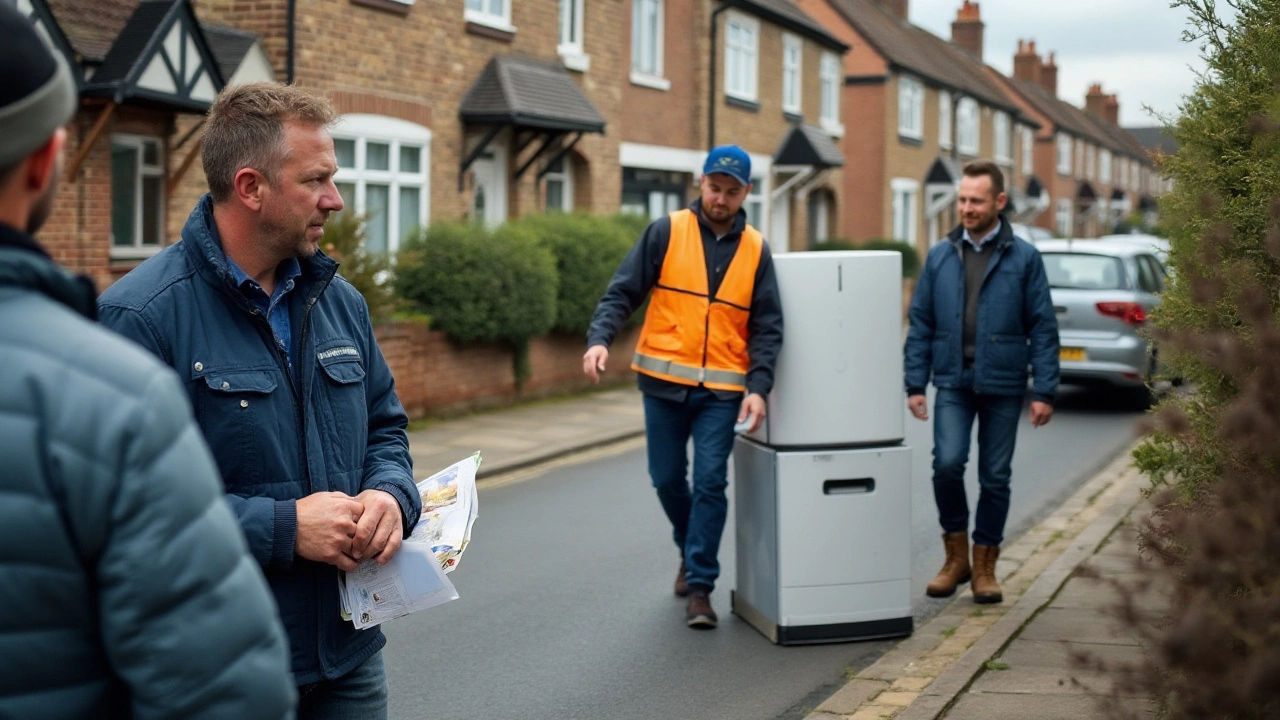
Safety and Environmental Impact
When discussing the safety of an aging boiler, the conversation naturally turns to gas leaks, carbon monoxide emissions, and the risks they pose. A 20-year-old boiler may not have the modern safety features found in newer models. Old boilers often lack automatic shut-off, advanced leak detection, and robust pressure control. These features are designed to prevent potentially life-threatening situations. Carbon monoxide, often called the 'silent killer,' is particularly concerning. Without proper ventilation and modern sensors, an old boiler might not alert you to its presence until it's too late. Safety should always be a paramount consideration, and the risk of maintaining such an outdated appliance could outweigh the benefits of repair.
In terms of environmental impact, boilers built two decades ago were manufactured with different priorities and technologies. Older models are generally less efficient, consuming more fuel and, consequently, generating more pollutants. While it may still run, this inefficiency contributes to higher carbon emissions, exacerbating climate change. Newer boilers boast enhanced energy efficiency due to advances in technology that have changed how energy is harnessed and utilized. These innovations not only reduce fuel consumption but also minimize greenhouse gas emissions, making them an environmentally sound choice. Consider that every small action adds up - replacing an old boiler with a modern counterpart can be one of those significant steps towards reducing your household's carbon footprint.
To illuminate the transition from outdated to modern heating solutions, the Environmental Protection Agency states, "Replacing an old, inefficient boiler with a new high-efficiency model could reduce your carbon footprint considerably."
"An inefficient boiler may account for significantly higher household emissions than expected," - EPA Report.The move may seem daunting at first, but it's worthwhile to explore benefits that extend well beyond immediate cost savings. Those benefits are reflected in both environmental health and your personal satisfaction in contributing to a sustainable future.
It’s worth considering the legislation and incentives that promote environmentally-friendly upgrades. Many jurisdictions offer rebates or tax credits to homeowners who replace inefficient systems with high-efficiency ones. Such programs aim to encourage modern technology adoption, balancing environmental priorities with economic ones. In short, repairing a boiler might seem like the easier option, but in the context of safety and environmental sustainability, a newer boiler is often worth the investment. These changes reflect a broader shift towards reducing environmental impact and championing safety and efficiency. These values resonate through advanced systems that offer peace of mind and environmental responsibility.
